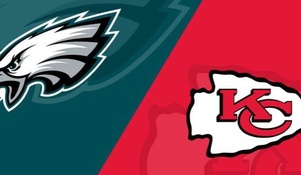It's High Noon for NFL players appealing Concussion Settlement

On August 17, 2011 my friend and University of Richmond alumni brother, Ray Easterling filed the first federal class action lawsuit over the concussion issue. Shortly after that initial filing, Ray, myself and many other former player advocates began encouraging players to retain lawyers and file individual lawsuits. 4,566 former players eventually joined the posse and over the next few years our search for justice finally culminated in 20,000 former players being included in a Settlement that was approved on April 22, 2015.
As most of you know, I recommended the approval of the Settlement, especially after the NFL agreed to remove the cap on the amount of money the NFL would be liable to pay to former players that were diagnosed with moderate dementia, full blown dementia, ALS, Parkinson's or Alzheimer's disease.
After a "Fairness Hearing" held by Judge Brody on November 19, 2014, there were several other modifications that made the Settlement even better. But keep in mind, the NFL had to agree to those recommendations – which, to their credit, they did. But even with the changes to the Settlement, there were 94 former players that were not satisfied with some of the terms, so they filed appeals.
It's high noon and the final showdown is now upon us. Over four years of litigation will come to a head on Thursday, November 19, 2015 - exactly one year since the fairness hearing - when the United States Court of Appeals will hear oral arguments on the appeals of former players who want to alter the NFL Concussion Settlement.
The Appellate Court could chose to confirm Judge Brody's approval of the $1 billion settlement, in which case the appellant’s would have no other recourse - unless, of course, some of them decided to file an appeal with the United States Supreme Court. If that were to happen, it would probably delay the Settlement for another year.
Several prominent attorneys called for an end to the appeals, but unfortunately those calls were ignored. I have previously written about how some former players will never personally receive an award - only their family members will - because they will die waiting for the appeals process to run its course. In fact, several have already passed away since the appeals were filed.
I don't think there's much chance that the appeals will succeed, but if the Court were to rule in favor of one or more of them, the settlement would then be sent back to Judge Brody’s district court, along with the Appelate Court's recommendations. Again, any changes to the Settlement would have to be agreed to by the NFL. But would the NFL agree to any additional changes to the Settlement? There’s no guarantee, especially on the issue of compensating players for the symptoms associated with CTE, such as confusion, impaired judgment, impulse control problems, suicidal thoughts, aggression, depression, headaches and anxiety. Compensating former players who supposedly have CTE - and deceased players who have autopsies showing they had CTE are the central arguements in the appeals, but unfortunately, the current science and research were not sufficient to support our case in court.
I don’t know if you saw the CBS program 60 Minutes last night, but Robert Stern, Director of Clinical Research at the Boston University CTE Center, was on the show talking about the disease. He acknowledged that they still don't know why some players get CTE and others don't, and he reminded everyone that there is still no test to show that someone has CTE while they are still living - although he claimed that they would probably have one within five to ten years. Even if they develop a test, there are some people that have been diagnosed with CTE - post mortem - that never showed any signs or symptoms of CTE while they were alive. How do they explain that? More importantly, how do our lawyers explain that in a courtroom?
It’s also interesting to note that on the BU CTE Center's website under FAQ’s, they pose the following question: If I have the symptoms of CTE, do I have the disease itself? Answer: Just because you have some or many of the symptoms of CTE does not necessarily mean that you have the disease itself. There are many possible causes of these types of symptoms. If you are having difficulties, you should speak with your primary care or specialist physician. The BU CTE Center's own website destroys the argument for compensating players with the symptoms that are commonly associated with CTE, so how could we expect our lawyers to win this arguement in court?
The NFL lawyers would have shot holes all over the CTE issue - and our lawyers knew it. Giving in on the issue of CTE could have cost the NFL billions of dollars and before they were going to let that happen, I think they were prepared to shoot it out at the OK Corral by going back to court.
I should note that CTE will not be the first issue addressed by the court if litigation were renewed. The first order of business would be the issue of Preemption – one that has not gone very well for former players in some of the more recent cases. Judge Brody never ruled on Preemption, but now there are several precedents that have been set that could be used by the NFL to bolster their case. After Preemption, we would still have to contend with the Statute of Limitations, Assumption of Risk and several other hurddles.
Whatever happens on Thursday, I hope both sides will ultimately come to a quick and final resolution. According to the actuarial reports, almost 6,000 retired players are expected to develop dementia or worse - and thus be eligible for compensation under this settlement. Many are already eligible and have been patiently waiting for the court battles to end.
Nellie Drew, a sports law expert and adjunct professor at the University of Buffalo Law School said it best. “Many of these families needed the money two years ago. As long as this is under appeal, the money is not available to them. It’s not just a question of setting themselves up for the future, it’s for medical coverage that they’re not currently getting at the levels that they need.”
I second that emotion.






